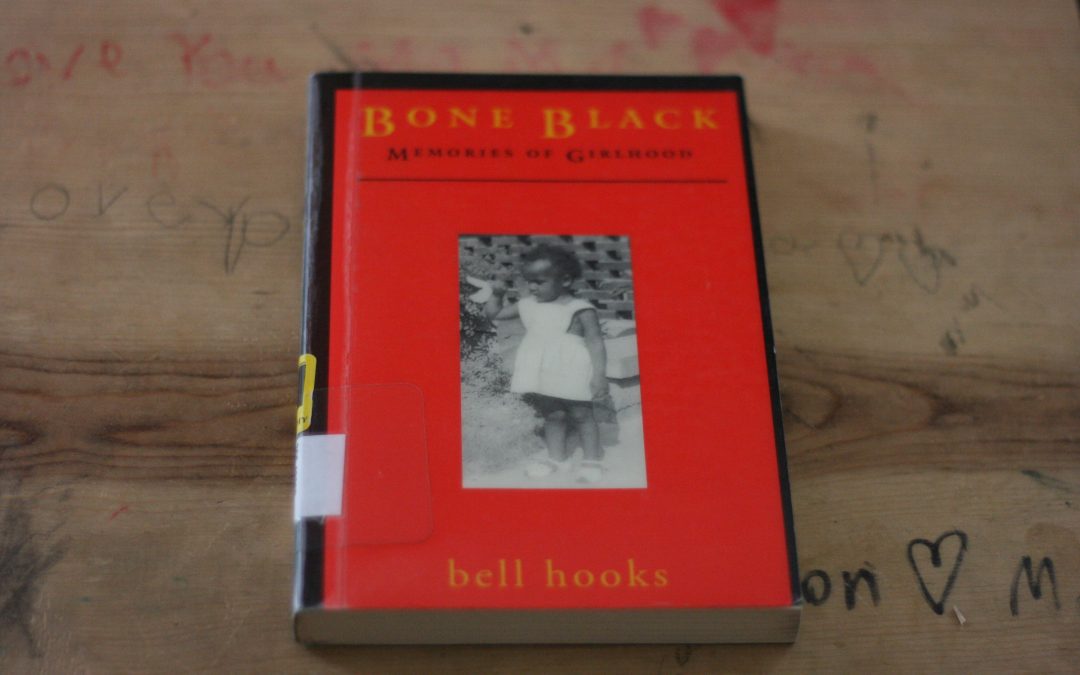I’m a big fan of bell hooks’s poetry, and when I found one of her memoirs on a recommended reading list for good memoirs, I immediately marked it down on my reading list. I love memoirs that are told with poetic language and simplicity, and hooks’s has both.
bone black: memories of girlhood is the story of a girl growing up black—the things that were expected of her, the ways she was different, and what that told her about the culture in which she found herself. It was engaging, lyrical, and deeply introspective.
Some moments I found myself relating to her stories and thoughts and feelings, though I did not grow up in her culture or her time period, and other times I found myself mourning for her, as is the case in this passage about the library:
“We are not allowed to take books home. There is no money to replace them if they are lost. I am a good reader, careful with books, a library helper. I take as many books home as I like. I read Laura Ingalls Wilder’s Little House on the Prairie and Alcott’s Little Women—and every other Alcott book. I find remnants of myself in Jo, the serious sister, the one who is punished. I am a little less alone in the world.”
On the one hand, I relate to finding herself in these books. On the other, my experience at the library was to bring as many books home as I wanted, though, like her family, my family would not have been able to replace the lost books. I am only glad that my mom didn’t let that get in the way of what she knew: that a child is changed in reading.
Here are three things I enjoyed most about this memoir:
- The chapters read like essays. I loved that the story wasn’t completely linear, but hooks began each chapter with a different topic and then explored that in the best way she knew how, a way that followed her train of thought. Some of the chapters even used different points of view—like third person instead of first. It gave the book an unusual feel and drew me even deeper into the story.
- Her ambiguity mixed with her specificity. Sometimes hooks wrote very vaguely about certain events in her childhood, and other times she wrote very specifically. She used this device in a masterful way that communicated suspense and trauma. And for the reader it provided both a drawing in (the specificity) and an intriguing separation (the ambiguity).
- The dialogue was never placed in quotations. What this denotes, for me, is that it was a summary of what was said. When dialogue in memoirs is placed in quotations, I always wonder, as a former journalist, how accurate it really is. Were they taking notes as this happened? Of course there is room for error and memory quirks in memoir, but I appreciated that hooks did not use quotations and simply delivered the dialogue in her own voice.
bone black is a short memoir and a quick read, but it’s full of wisdom, insight, and beauty.
The book mentioned above has an affiliate link attached to it, which means I’ll get a small kick-back if you click on it and purchase. But I only recommend books I enjoy reading myself. Actually, I don’t even talk about books I didn’t enjoy. I’d rather forget I ever wasted time reading them. (But if you’re curious whether I’ve read something and what I thought about it, don’t hesitate to ask.)


